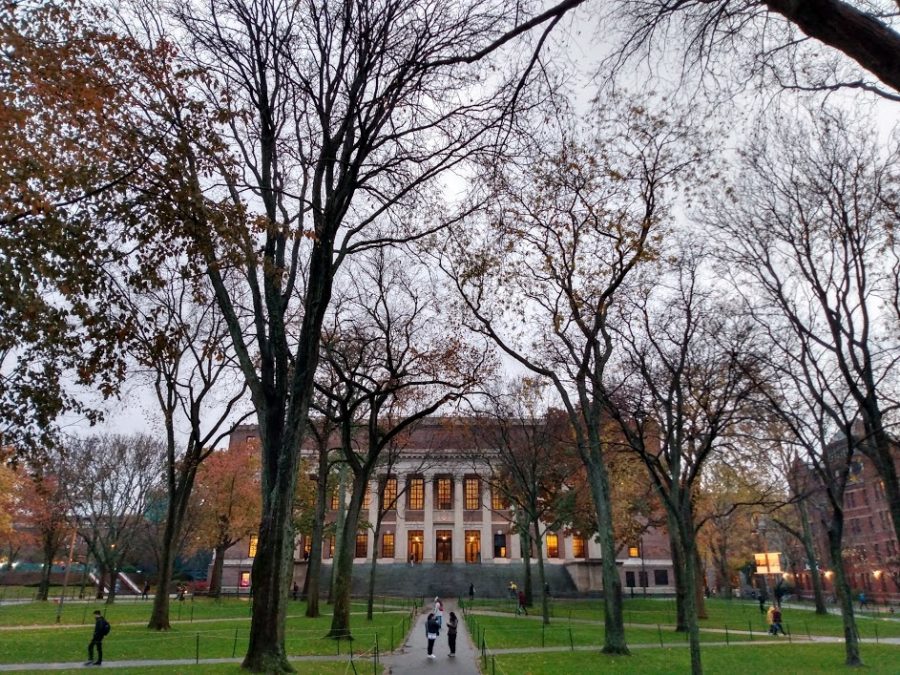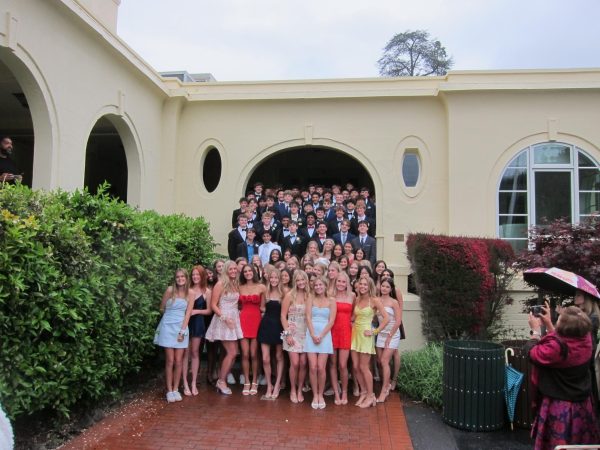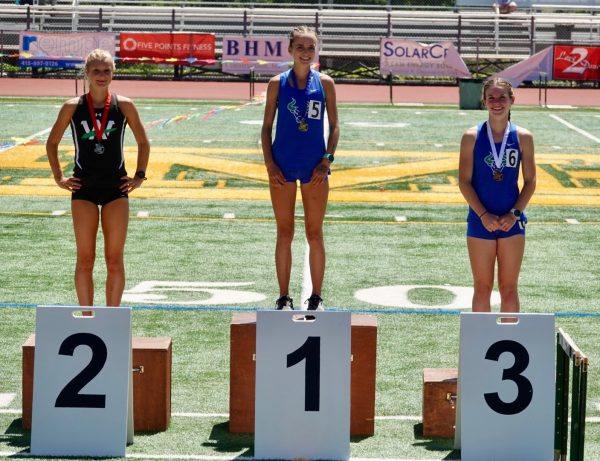COVID-19’s impacts on the college process
May 22, 2020
Amid the myriad challenges brought on by COVID-19, one issue that has become increasingly central to the lives of college-bound Branson students are the changes the pandemic has brought to the college admissions process.
As universities close their doors to the public and standardized test dates are cancelled, Branson juniors and seniors are finding themselves forced to navigate a new set of challenges as they determine the next steps of their educational careers.
For seniors who applied to college this year, the COVID-19 crisis arrived at a unique time in their admissions cycle. By the time the crisis was in full swing, most colleges had completed and finalized their admissions decisions for the incoming class of 2024, said Matthew Lane and Chris Rodriguez, who together direct Branson’s college counseling team.
But although this year’s admissions weren’t necessarily affected, COVID-19 has still significantly impacted seniors’ college decision-making process in other ways — both positive and negative.
One factor that impacted this year is the way colleges have used their waitlists.
“Traditionally, only a small number of colleges have used their waitlists to fill spots in incoming classes before May 1st — the date by which seniors inform colleges where they’re attending,” said Lane and Rodriguez in a statement. “What we’ve seen in this cycle, though, is many colleges moving more aggressively to fill anticipated openings through waitlist acceptances. This is certainly something that has benefited Branson’s seniors as well as many others around the country.”
But despite this benefit, COVID-19 has brought considerable uncertainty to seniors’ decision process. Colleges have almost universally communicated that they will follow state and local guidelines on whether to reopen in the fall, when many Branson seniors hope to start their freshman year. These guidelines are in flux as the pandemic continues.
“One thing is clear: Colleges all hope to be open,” said Lane and Rodriguez. “They also recognize the gravity of the situation and do not want to put students, faculty, or staff on their campuses at risk by reopening before it’s deemed safe to do so.” According to the college counseling team, it’s likely that colleges will announce their fall plans sometime in July.
In light of these uncertainties, some Branson students fear that COVID-19 concerns and shelter-in-place guidelines will potentially extend into the fall of their freshman year.
“We have had a few students consider pursuing gap years due to the uncertainty this is causing, with the idea of starting their colleges careers in the fall of 2021, when things may more closely resemble what was considered ‘normal’ prior to COVID-19,” said Lane and Rodriguez.
One student who took this option was senior Leo Jacoby, who decided to defer his admission because of the COVID-19 crisis.
“College is supposed to be one of the most special times of your life, and I didn’t want to spend a year of it on a compromised experience,” he said.
Moreover, as shelter-in-place continues, seniors aren’t able to visit the schools that accepted them in person — a factor that’s impacted how some are making their final college determinations.
“I got accepted to one of my top choices but never actually visited,” said Jacoby. “I ended up not choosing to go there, but it’s possible that I could’ve visited over spring break and fallen in love.”
Senior Adriana Golden arrived at a similar conclusion.
“At the end, I decided on a college that I had previously visited, because I didn’t feel comfortable moving somewhere where I had never been,” she said.
Jacoby and Golden are far from the only ones facing this challenge. As colleges close themselves off from the public, many seniors are struggling to decide where to enroll.
“As an athletic recruit, I had to make a very tough decision about a school that I had not had the chance to visit,” said senior Paris Manthoulis. “My decision may have been different in a regular year.”
“Basically, I chose my school without knowing what I should be looking for when I visited [as an inexperienced junior] or exploring the surrounding area, and I actually never visited one of them,” said senior Prudence Kelly-Andrews. “It’s not that big a deal; a lot of people chose without visits, but it’s a stressful data point to lose.”
Even seniors who managed to visit colleges before they enrolled are feeling the pressure.
“Being away from school, friends, faculty, and all sense of normalcy leaves me without the closure I need to accept and move on to this new chapter of life,” said senior Audrey Dickinson. “I’ve doubted my acceptance and choice to enroll in the fall; imposter syndrome hits harder when you’re stuck at home overthinking everything, wondering if you’ve made the right decision about a future you can’t even try to predict.”
Significantly, COVID-19 has also affected some seniors’ financial considerations in the college process.
“With the volatility in the financial markets and unemployment numbers on the rise, some families have needed to appeal financial aid offers, consider in-state options, or revisit college offers that included generous merit scholarships,” said Lane and Rodriguez.
At the end of the day, though, most Branson seniors have “proceeded as if nothing is different,” college-wise, concluded Lane and Rodriguez, veterans in the decision-making process. “We haven’t seen many seniors at Branson change their decision-making processes based on COVID-19,” they said.
But while Branson seniors might be able to proceed relatively uninterrupted, juniors, who will apply to college next fall, have little hope of a normal college process. As shelter-in-place continues, Branson juniors are grappling with a unique set of college-related challenges.
“All three SAT dates I signed up for have been canceled,” said junior Sydney Pearson, as test centers are being shut down across the country due to shelter-in-place.
“Typically, during the end of our junior year we would be visiting colleges, adding favorites to our list, and crossing others off,” added junior Jessica Le. “Without the option [to visit colleges], I cannot really make those decisions.”
Both prospective juniors and admissions officers alike are currently adapting to the challenges posed by COVID-19.
Notably, as standardized test dates are cancelled across the country, an unprecedented number of schools are adopting a test-optional admissions model, including the University of California system. With this policy shift, if students chose not to submit test scores, “they’ll be evaluated on the other pieces of their file, such as grades, recommendations, and essays, with those components bearing more weight in the student’s decision,” said Lane and Rodriguez.
Indeed, Lane and Rodriguez feel that Branson juniors have adapted remarkably well to new circumstances.
“Given all the stress usually baked into this process in a normal year, and then adding uncertainty about how grades and test scores will be used or what opportunities to visit schools will exist, the juniors have been remarkably upbeat and flexible in discussions about college,” they said.
They noted that students have been particularly creative in finding alternative solutions to college visits, such as utilizing Scoir virtual tours, reading college guidebooks, watching information sessions on YouTube, and reaching out to recent Branson alumni for a student perspective.
Most importantly, many juniors have adopted a positive attitude towards their upcoming college process and the way that shelter-in-place has impacted it.
The lack of in-person visits “has actually opened me up to new options that I would not have considered before,” Le said. “The process of actually visiting campuses actually discounts many schools, as we tend to only visit New England or the West Coast.”
“So many colleges are setting up virtual information sessions and tours, I’ve been able to learn about a diverse range of colleges geographically, instead of being limited by how far I can travel,” Pearson agreed. “I’ve been able to do 18 information sessions in the past month, which I never would have been able to do before, so despite the limitations of not being able to feel out the campus physically, the COVID-19 situation has actually improved my college process in some ways.”
But still, despite these new challenges and changes, Lane and Rodriguez remain optimistic about the future.
“With disruption comes opportunities for innovation,” they said. “This may be the spark for some much-needed change in the field of college admission.”





